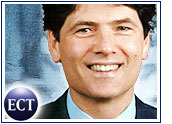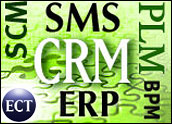
Sales methodologies and sales force automation (SFA) are a combination that should be a natural fit. In practice, however, method support is poor in most current forms of SFA. Sales managers want their representatives to follow the company’s defined methodology, but often salespeople veer off course, wasting time and resources. Most importantly, when salespeople go off on a tangent, their data trails leave little hint of what they have accomplished, making it harder to coach them later.
The disconnect stems from the fact that most SFA systems are transaction-oriented and reactive, while methodologies describe a proactive process that leads to a result. The transaction orientation is understandable because the natural business model is a face-to-face selling situation: A vendor offers, a customer accepts, and value is exchanged. But the reality of modern selling is vastly different. For every moment spent in front of a customer, a good salesperson spends hours researching, analyzing, preparing and delivering information, demonstrations and proposals.
Most sales methodologies take all this into account, but most SFA systems are still rooted in reacting to the customer and driving for the transaction. In this world, a methodology can do little more than provide retrospective milestones of the activity. Does the customer have a need and a budget? Does the rep have access to power? Answering “yes” to these questions provides scant information on which a sales manager must decide to invest company resources in a selling process.
Workflow Technology
Over time a sales organization develops its own sales method — a set of steps that are proven to work based on a company’s products and services, market economics and competitive position. In most cases the sales method is a combination of best practices and formal methodology learned from a book or a third-party sales training organization. But like any learned process, the secret to success is in repetition. Trained salespeople who go back to work and apply what they have learned excel and are generally in the top 20 percent of their companies’ performers.
Sales managers know who their best performers are, and most wish there was a way to take what that 20 percent knows and apply it to the 60 percent or so who form the big bulge under the bell curve. (The bottom 20 percent will be routinely culled no matter what.) But changing the behavior of that middle 60 percent requires consistent coaching and accurate application of a sales methodology — an almost impossible task given all the other demands on a sales manager’s time.
If an SFA tool could guide the middle 60 percent to perform more like the top 20 percent, it would need to do much more than capture backward-looking milestone events. It would be able to support, adjust and optimize the sales process regardless of the methodology a company subscribes to — acting like an “invisible hand” supporting the methodology. The way to approach the solution would be to embed workflow technology into the SFA tool.
Methodology Support
A workflow-based SFA system performs some of the same functions that a knowledgeable sales manager might perform by asking the hard questions and expecting an answer. For example, a company’s sales methodology might call for the salesperson to gain and use access to the decision maker as a criterion for investing in the development of a demonstration. A good salesperson understands the importance of this milestone and works to achieve the required result.
In a milestone-based system, however, access to the decision maker might be glossed over by a less knowledgeable salesperson if that person is promised that the decision maker will be “at” the demo. Proceeding through that milestone rather than negotiating for access might be rationalized away by a salesperson behind on quota and in a hurry to make up lost time, but for a sales manager that simple equivocation is like finding a nail in a tire.
Making Adjustments
In a workflow-based system — and depending on how the workflow is set up — the process can be suspended, access to demo resources can be denied, or the relevant manager can be alerted of the need for an override if the methodology is not being followed. In this case, not getting a meeting with the economic buyer would flag this prospect as being unqualified and therefore not a candidate for a demo.
This might sound a bit severe, but demonstrations are expensive to set up, and if there is competition within a sales organization for limited resources, a workflow controlled methodology is a fair way to ensure the best return for a company’s sales investment.
Optimized Selling
A true methodology should be made up of a series of “go/no-go” decision points at which both sides in a sales process evaluate the results to date and determine whether and how to proceed. In a milestone-based approach, the only real go/no-go decision happens at the close, and it is the customer’s decision. But in a workflow optimized situation, since a methodology is more likely to be enforced, it is easier to identify failing situations and take corrective action or redeploy resources. In either case deals that reach the final stages of the sales process are better qualified and have a higher chance of closing.
Over the last few years CRM has gained hard-won acceptance from the people who use it — at least in part because enough time has elapsed for them to have figured out how to use it productively in their daily activities. In SFA, the acceptance process was accelerated by the application of methodology, even though milestone-based SFA tools were not an ideal fit for most methodologies. With the introduction of flexible workflow-based SFA, that situation began to change.
Workflow is one part of a comprehensive approach to SFA adoption and improvement in sales force performance. Analytics also plays an important role in helping salespeople and their managers to identify challenges and opportunities at a macro level. But there is no substitute for ensuring that the work of selling is performed in the ways that lead to optimal performance for a company. Competition is always ratcheting up, and many sales organizations already use advanced SFA technologies to improve their results. More sales organizations need to become adept at how they work and use resources if they expect to stay in the game.
Denis Pombriant is former vice president and managing director of Aberdeen Group’s CRM practice and founder and managing principal of Beagle Research Group. In 2003, CRM Magazine named Pombriant one of the most influential executives in the CRM industry.














































Social CRM
See all Social CRM